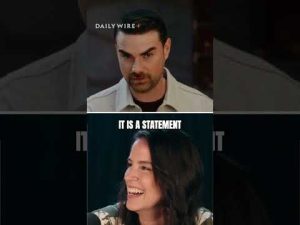Recently, a shocking political story emerged about French President Emmanuel Macron that caught the attention of media outlets and viewers alike. Initially, there were swift accusations that the video related to this story was fake, generated by artificial intelligence, and part of a broader disinformation campaign. However, the video was substantiated by credible sources, including the Associated Press, which makes it hard to dismiss this narrative as mere conspiracy.
As the story gained traction, those in support of Macron attempted to spin the narrative. They alleged that the video was being propagated by Russian troll farms and extremists in France, aiming to undermine Macron’s credibility. This strategy appears to signal a desperate attempt to deflect from the unfolding drama that the French political landscape is experiencing.
In an effort to contain the growing scandal, Macron felt compelled to address the allegations directly during a press conference in Vietnam. His approach was surprising, to say the least. Instead of a straightforward denial, he made a bizarre remark comparing the video scandal to slanderous claims about his personal life. He dismissed the rumors as being “as fake as the story that I’m a drug addict and that I’m a homosexual.” Such a statement is not only unorthodox but also detracts from the central issue at hand, which is the integrity of political leadership and the veracity of information being presented to the public.
The fallout from Macron’s comments raises serious concerns about the current state of political discourse. Rather than clarifying the situation, his remarks veer into absurdity and humor, thus trivializing what could be a watershed moment in political accountability. If leaders cannot handle controversies with serious and reflective dialogue, why should citizens respect their authority? It sends a message that they might prioritize defending their image over addressing the real issues plaguing their governance.
Moreover, the implications of these developments stretch beyond France’s borders, shining a light on the broader issue of misinformation and the power struggles within democratic institutions. It highlights an urgent need for accountability—something that conservatives argue is often overlooked in today’s political climate, particularly when it comes to leaders whose policies and stances are rooted in liberal ideologies. It becomes essential for conservative voices to remain vigilant and active in advocating for transparency and integrity in governance.
In summary, the incident surrounding Macron encapsulates a critical moment for political leaders. As the truth navigates its way through the murky waters of misinformation, it becomes clear: the integrity of political office must not be treated lightly. Instead of dismissing serious allegations with flippant rhetoric, leaders owe it to their constituents to engage in earnest conversation about accountability. The stakes are high, and the time for serious discourse is now.







